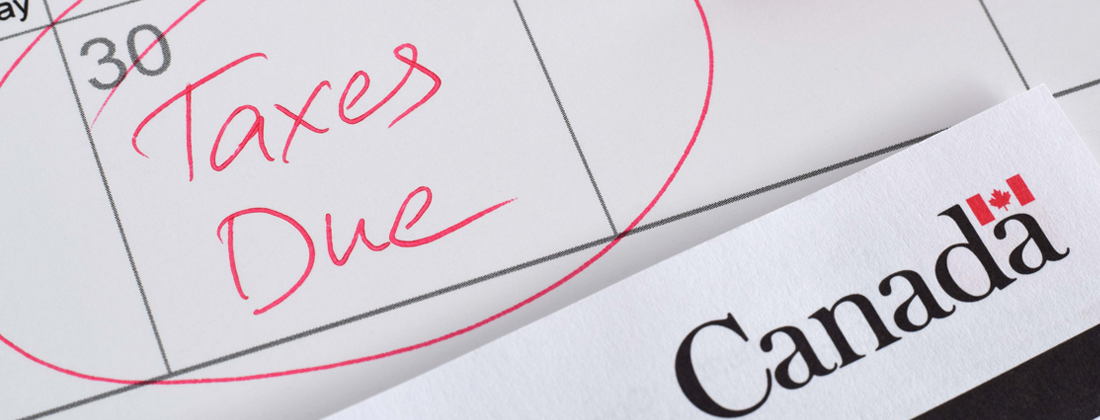
Life Insurance Isn’t a Loophole. It’s a Smarter Way to Pay the Taxman
When you die, who would you prefer your money to go to?
For many Canadian business owners, the tax bill at death is the single largest expense their estate will ever face.
Whole life insurance isn’t a loophole. It’s a strategic, tax-efficient way to ensure that bill is covered—without dismantling what you’ve built.
The Challenge: Taxes at Death
When a business owner passes away, the CRA treats private company shares as if they were sold at fair market value. This “deemed disposition” can trigger a significant capital gains tax bill.
If a holding company also has investments, there’s often a second layer of tax when funds are distributed to heirs.
The CRA will get paid. The question is:
Will you fund that payment efficiently, or leave your estate scrambling?
Why Whole Life Insurance Makes Sense
A Tax-Free Payout
– The death benefit is paid tax-free to the corporation, giving your estate immediate liquidity to settle taxes.
Capital Dividend Account Advantage
– Most of the death benefit (minus the policy’s adjusted cost basis) flows into the CDA, allowing funds to be distributed tax-free to heirs.
Certainty and Liquidity
– Unlike corporate investments that may fluctuate, life insurance provides guaranteed cash at the exact moment it’s needed.
What If You Already Have the Money to Pay the Tax?
Many business owners think:
“I have enough cash or investments in my corporation to cover the tax bill.”
On paper, that seems like a solid plan. But there are challenges:
- Market Volatility – If markets are down at death, heirs may have to liquidate at a loss.
- Tax Erosion – Corporate investments are taxed annually on growth and again when distributed to the estate.
- Business Disruption – Using corporate cash for taxes could impact operations or succession plans.
Life insurance avoids these pitfalls by:
- Providing immediate, tax-free liquidity
- Using corporate dollars (cheaper than personal dollars) to pay a personal liability
- Preserving retained earnings for growth or transition
Case Study: Mark Smith
Mark, age 65, owns a successful business and plans to pass it on to his children. He’s projected to face a $2.5M estate tax liability at death. His corporation currently has $5M in retained earnings.
Mark’s Goals
- Eliminate double taxation risk on his corporate investments
- Preserve corporate capital for future growth or distribution
- Provide liquidity for estate settlement without selling assets
The Strategy
- Estate Freeze – Mark exchanged common shares for preferred shares, locking in tax liability. New common shares issued to his children.
- Corporate-Owned Life Insurance – His company funded a $2.5M Whole Life policy with annual premiums of $115,000 for 20 years.
Results at Age 85
| Strategy | Net to Estate | Advantage Over Investments |
| Corporate-Owned Life Insurance | $3,386,528 | +$848,860 (+33%) |
| Self-Funding with Investments | $2,537,667 |
NOTE: Projections are based on current tax rates and assumed growth rates. Actual results may vary.
Why Life Insurance Tax Strategy Matters
To achieve the same result with investments, Mark’s corporation would need to earn an after-tax return of 9.7% annually—a challenging target even in the best markets.
With life insurance, Mark created certainty: his estate now has immediate, tax-free liquidity, and his family inherits the full value of his business without disruption.
Why It’s Not a Tax Loophole
This approach is built on established provisions in Canada’s Income Tax Act:
- Section 89(1) Capital Dividend Account rules
- Tax-free death benefit provisions
- Tax-deferred growth of cash value
It’s not about avoiding tax. It’s about paying it intelligently.
The Big Picture on Tax After Death
At death, your wealth can only go three places:
- The CRA
- Your family
- A charity you care about
With proper planning, you decide who gets more.
Corporate-owned life insurance helps fund your estate’s tax obligations with corporate dollars—leaving more for your family and minimizing disruption to your business.
Final Thoughts on Life Insurance as a Smarter Way to Pay the Taxman
Life insurance isn’t a loophole. It’s a strategic tool for business owners to protect their legacy and ensure their estate is settled on their terms. Want to see how this strategy could work for you? Contact us for a complimentary estate planning review.